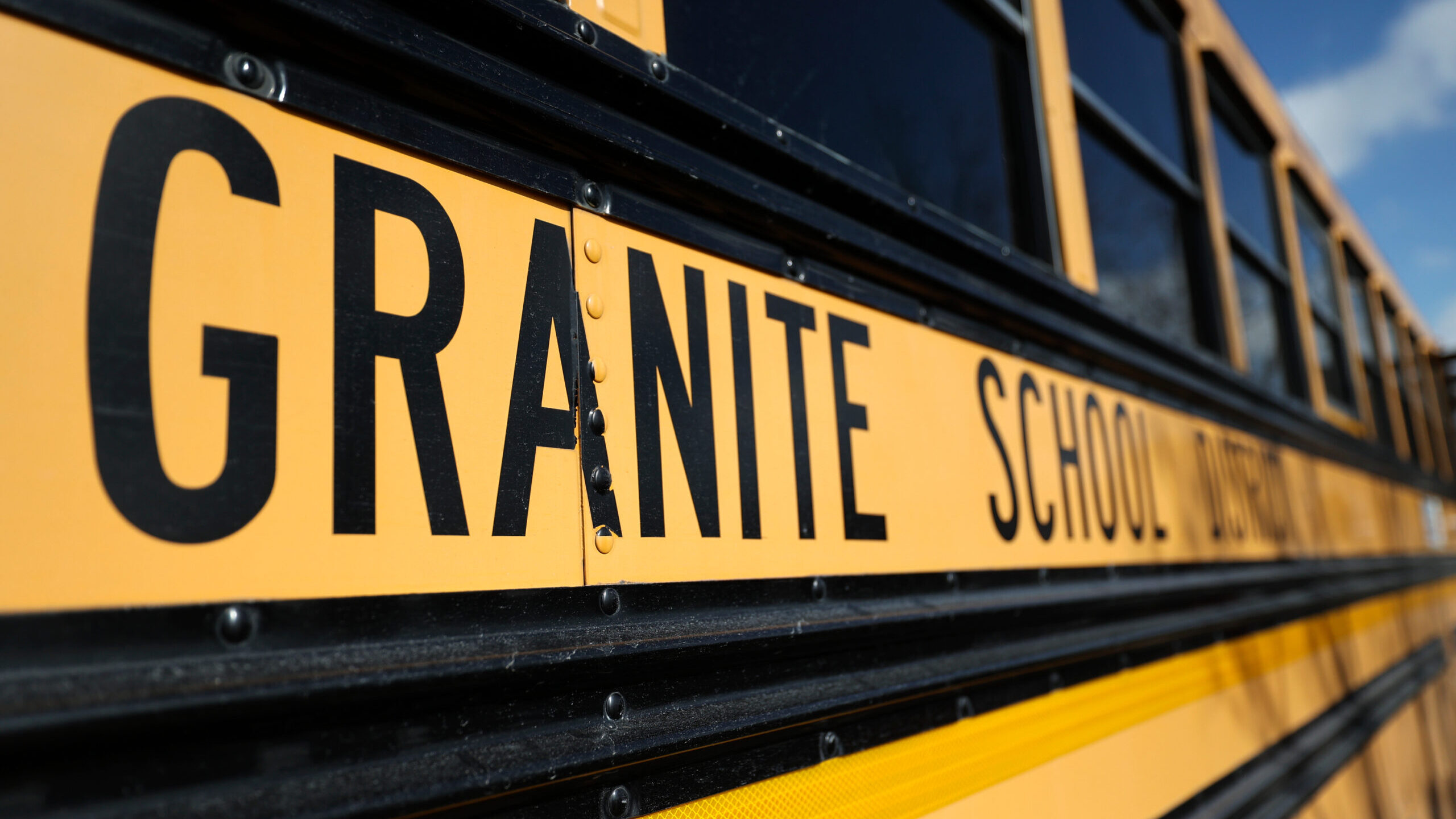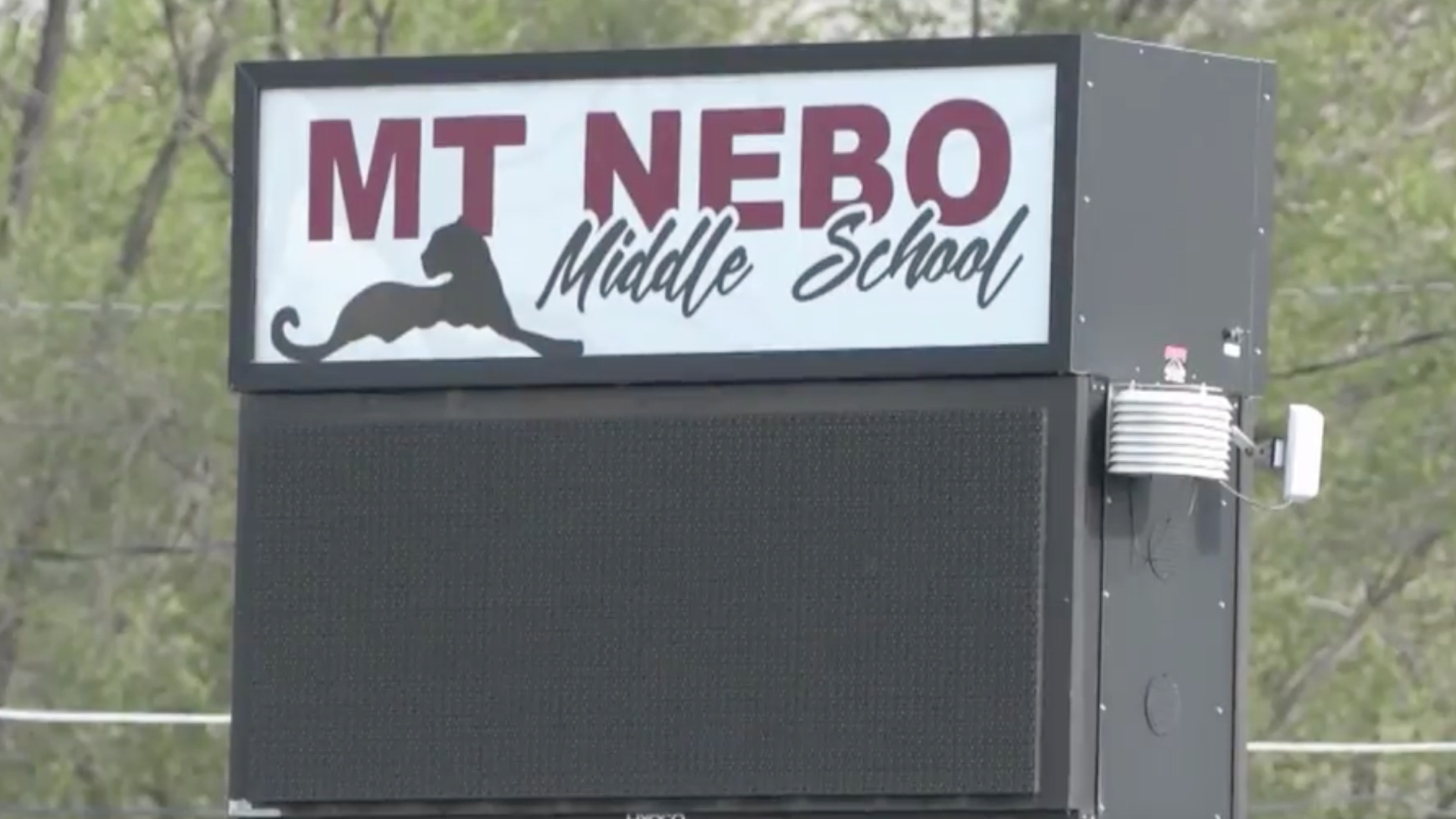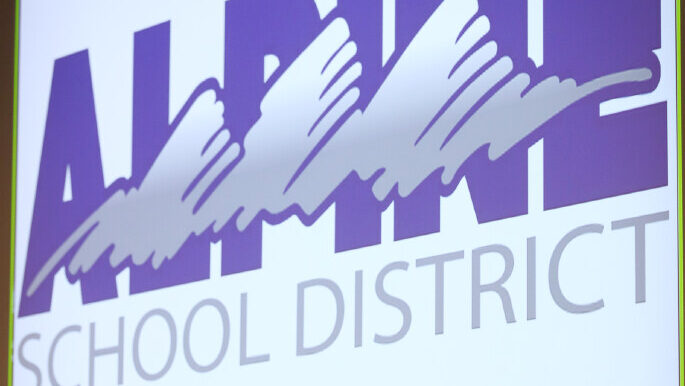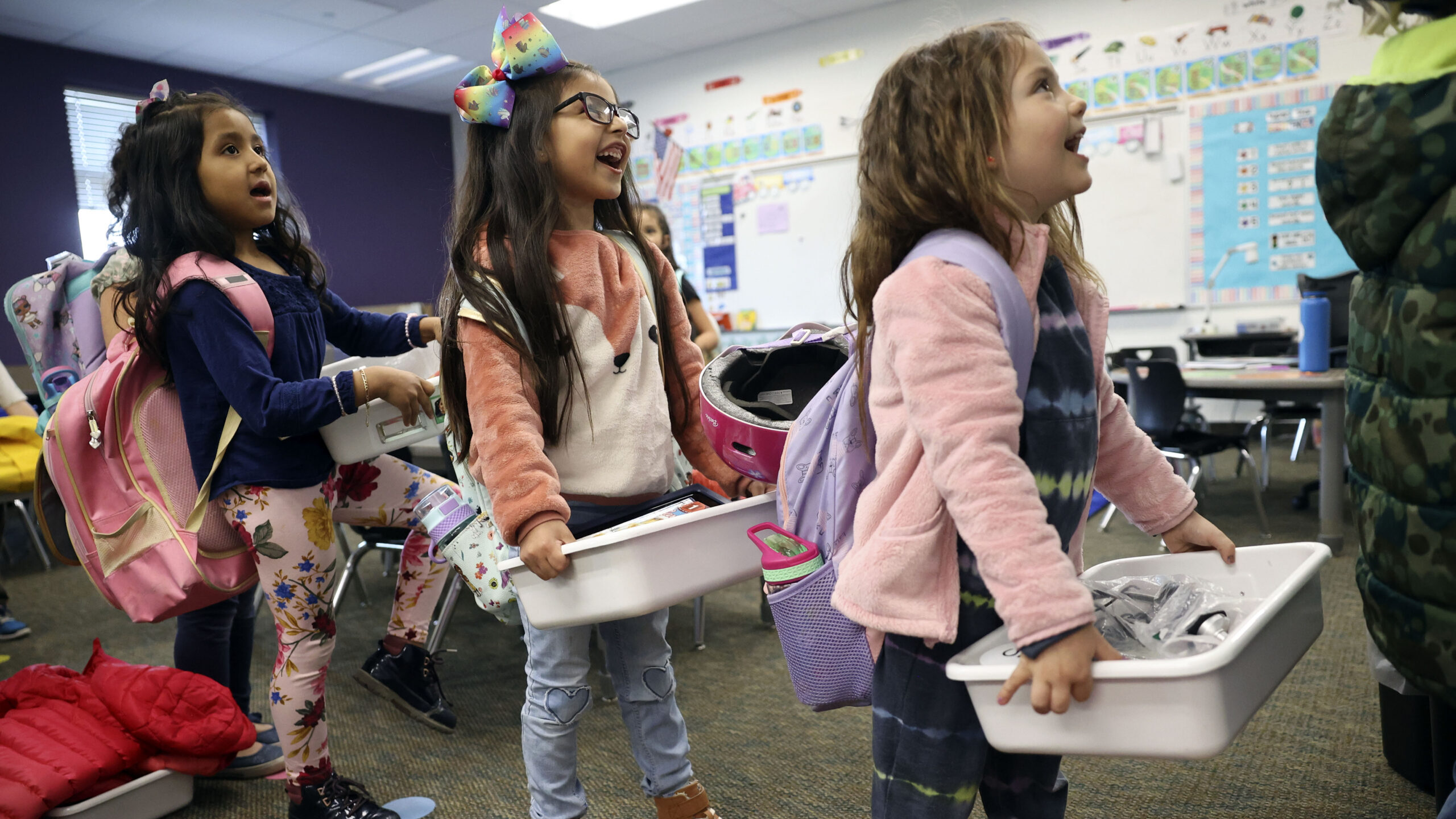Too many carrots, not enough sticks: chronic absenteeism in Utah schools
Jan 31, 2024, 6:00 AM | Updated: 10:07 am

A Granite School District bus is pictured outside of the Capitol in Salt Lake City, on Tuesday, Feb. 7, 2023. A Granite spokesman spoke with KSL NewsRadio about chronic absenteeism in Utah schools, it's causes, and it's effects. (Kristin Murphy, Deseret News)
(Kristin Murphy, Deseret News)
SALT LAKE CITY — Chronic absenteeism has skyrocketed from 13% in 2018 to 27% in 2022. And worse, data from the Utah State Board of Education shows that as more students skip class, test scores have plummeted.
The problem doesn’t discriminate. Ben Horsley with the Granite School District said he’s seeing increasing absenteeism “across the board.”
Horsley told KSL NewsRadio’s Dave & Dujanvoic that teachers are being blamed for the low scores. However, there’s not much schools can do to make kids come to school.
“Frankly, mandatory attendance in school is no longer a thing,” he said. “And so parents are not being held responsible.”
One concern for Horsley is recent juvenile justice reforms. He said they’ve made it difficult for schools to issue any consequences for truancy.
“Juvenile justice reforms a few years ago got rid of the truancy referral to court for students who were chronically absent,” he said.
“There was some well-intentioned effort behind that. (But) we’re trying to get that changed back.”
He said that schools need the ability to refer truancy to juvenile court, when other intervention methods have failed.
“At the end of the day, a kid’s not going to come to school without that pressure from their parents,” Horsley said.
What changed in Utah’s juvenile justice system?
Utah lawmakers began investigating ways to reduce juvenile criminal recidivism in 2016. A Pew Trust study found that “most youth referred to the Utah juvenile justice system entered with low-level charges such as truancy.”
The study authors found that kids referred to juvenile justice in Utah were more likely to have subsequent charges against them.
But along with trying to decrease the number of kids going through the justice system in Utah, perhaps to their detriment, lawmakers wanted to create statewide standards for juvenile cases. According to the Pew Trust study, sentencing guidelines “existed but were not binding.”
In November 2016, lawmakers received HR239 Comprehensive Juvenile Justice Legislation ahead of the 2017 Utah Legislative Session. It required that low-level offenses like truancy “be handled without court intervention.”
Related reading:













